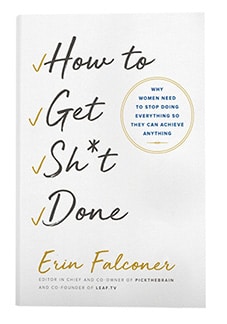Imagine yourself on a stage in front of 3,000 people. Everyone is staring at you with anticipation. The room is eerily silent.
The eager listeners in the audience came to see you.
The topic doesn’t matter, only the fact that you are the center of attention.
Does this thought inspire your supreme confidence and unabashed enthusiasm, or does it conjure up some of your worst fears?
- “What if I forget the words?”
- “I might do something stupid and embarrass myself.”
- “They’ll have no idea what I’m talking about.”
- “My [insert body part here] is/are sweating and everyone will know!”
According to a Gallop Poll, 40{54c12dad2cc2b53ae830e39915b1a3e70288dbcbbeb8bbf8395437c5dc3c512c} of us are afraid of public speaking.
So afraid that we’re more scared of speaking than death or snakes.
I’ve been there myself. When I was an intern in college, I called in sick on my last day of work just so I didn’t have to give a short presentation to a small group of engineers (who I had worked with).
Why is speaking in front of others so terrible for most of us?
It turns out that the millions of people petrified of public speaking share the same three universal fears.
Fortunately, all of these fears can be conquered if you just know what they are and specific strategies for dealing with them.
Let’s look at these three most common public speaking fears and how to eliminate them starting today.
1. How you speak
The first is a fear of saying the wrong thing, or in the wrong way.
You’re trying to express yourself, but you’re afraid you’ll forget what you wanted to say, you’ll “blank out,” you’ll mispronounce words, you won’t speak loudly enough, or you will fail to articulate what you meant.
Your goal is to share content with your audience, and yet you fear stumbling over the content itself (or completely forgetting it).
How to eliminate the fear of how you speak:
Do you usually memorize your speech from a script? If so, throw it out. Instead, use a single page of large-typed, outlined notes. Then, practice it—out loud—three to six times, depending on the length and your comfort level with the material.
When I started out, I used to write out my speeches and memorize them. The problem with this approach is that any slip-up throws you off and results in the “blanking out” and losing your place that’s so central to this fear in the first place.
By using higher-level notes that key you into the important points, each practice run will feel more like a conversation, and the speech will develop organically.
After you’ve put together your presentation and notes, find a room that’s as close to the real deal as possible. Practice with an overhead projector if you plan to use slides, and get a feel for the flow of the speech from start to end, such as transitions and areas where you expect to involve the audience.
Practice the opening, closing, and any critical points (such as quotes) more often. This will increase your confidence at the beginning (when you’re most nervous) and help you close with a solid and memorable impression.
2. How you look
The second is a fear of appearing awkward, or put another way, “looking like a complete idiot.”
Should you fold your hands, put them at your sides, or gesture with them? Are you making sufficient eye contact? Are you rocking, pacing, or fidgeting? Is your face making the right expression?
You might have a million thoughts bouncing around your head about how you look that have nothing to do with the message. And yet, you know you’re being judged.
How to eliminate the fear of how you look:
We all have nervous habits that make us appear nervous—whether we are or not.
If you can become aware of those habits, and develop new ones, you could learn to appear confident—whether you are or not.
Ironically, even confident people can have habits that make them appear nervous. The key here is to appear as confident as you are in the message you want to deliver.
If you knew you folded your arms, you would practice opening them up and using what’s called a “power” pose. If you knew you liked to stare at the same person (usually the most friendly faces in the audience), you would practice distributing your eye contact to make more of the audience feel included.
But the only way to do this is to get feedback. How?
Here are two ways I personally like to get feedback. You can use these to practice repeatedly and start replacing bad habits with good ones.
- Record yourself on video. Use your smartphone or a cheap video camera, and film yourself speaking for about 5 minutes. Then watch it back and write down the nervous habits that you notice most. This will give you the initial feedback to start replacing them with more confident, less nervous looking habits.
- Join a speaking club. Clubs like Toastmasters International, and training courses like Dale Carnegie, are designed around providing group feedback in a live setting, which will accelerate your awareness of your nervous habits so you can address them.
3. How you connect
The last is a fear of the audience not understanding you or your message—failing to connect.
Why are you speaking in the first place? To inspire, persuade, teach, or inform others. You might have the most amazing TED-worthy idea in the world, and yet you’re afraid the audience just won’t get it. Your fear is that you won’t connect.
How to eliminate the fear of how you connect:
Remember that you’re trying to solve a problem for the audience—whether it’s inspiring or educating. They’re not here for you the individual but rather what they will hear from you that satisfies their burning needs, pains, or desires.
One idea that’s worked for me is reaching out to or interviewing potential audience members in advance. If you can talk to even two or three members of your audience, you can tailor the speech to exceed their expectations. This will make it easy to connect.
Also, make sure to mingle with the audience before you speak. This will help calm your nerves, give you a chance to ask what they’re expecting of the talk (and tailor accordingly in real-time), and appear confident, authentic, and personable.
Lastly, tell your story. In Made To Stick, Chip and Dan Heath found that telling a simple story with emotion is much more powerful than your presentation delivery skills.
Final thoughts
My personal experience with these techniques gives me the confidence to stand by them. I used to be a shy, socially awkward, introverted engineer afraid of speaking up even in small meetings.
Today I regularly deliver speeches to large crowds, compete in speech competitions, and present myself as capable and competent. But that’s only because I worked at eliminating these fears by developing skills, not by changing who I am. You can do the exact same thing.
Now that you know the three most common public speaking fears and how to eliminate them, take action today!
Did these three public speaking fears—and how to eliminate them—resonate with you? Reply below!
If you liked this article, you might also like howtoattainsuccess.com.
————
Philip Pape is an author, public speaker, and Success Coach who helps smart people become confident and self-disciplined at howtoattainsuccess.com. He’s here to help you transform your approach to life—while making it all feel like it’s who you were meant to be. Checkout his free giveaways here. Follow Philip on Twitter @philip_pape
Erin shows overscheduled, overwhelmed women how to do less so that they can achieve more. Traditional productivity books—written by men—barely touch the tangle of cultural pressures that women feel when facing down a to-do list. How to Get Sh*t Done will teach you how to zero in on the three areas of your life where you want to excel, and then it will show you how to off-load, outsource, or just stop giving a damn about the rest.





I think this is a real great post. Want more.
Thanks-a-mundo for the post.Thanks Again. Awesome.
Looking forward to reading more. Great blog.Really looking forward to read more. Great.
Hey, thanks for the post.Thanks Again. Much obliged.
Awesome article post.Thanks Again. Fantastic.
Major thanks for the post.Really looking forward to read more. Cool.
I value the post.Much thanks again. Will read on…
Really informative article post.Really thank you!
I appreciate you sharing this article post.Much thanks again. Fantastic.
Very neat post.Much thanks again. Really Great.
I think this is a real great blog.Thanks Again. Keep writing.
Thanks-a-mundo for the blog article.Really looking forward to read more. Awesome.
I really enjoy the blog.Really looking forward to read more.
Fantastic blog.Really thank you! Great.
Im thankful for the post. Great.
This is one awesome article.Much thanks again. Want more.
Very good article post.Really looking forward to read more. Great.
Very good post.Thanks Again. Really Great.
A round of applause for your article post.Really thank you! Really Cool.
Say, you got a nice article post.Really looking forward to read more. Cool.
I appreciate you sharing this blog. Awesome.
Muchos Gracias for your article post.Thanks Again. Really Great.
Thank you ever so for you post.Really thank you! Cool.
I think this is a real great post.Thanks Again. Great.
Muchos Gracias for your blog. Want more.
Thanks so much for the article. Really Great.
I am so grateful for your blog article.
I loved your article.Thanks Again. Really Cool.
I loved your blog post.Really looking forward to read more. Will read on…
Major thankies for the blog post.Really thank you! Really Cool.
Thank you ever so for you article post.Really thank you! Much obliged.
I really liked your article post.Really thank you! Really Cool.
I truly appreciate this blog article.Really looking forward to read more. Cool.
I appreciate you sharing this blog post.Thanks Again. Really Great.
Fantastic article post. Fantastic.
Thank you for every other informative website. The place else may I get that type of info written in such a perfect way? I’ve a challenge that I am just now running on, and I’ve been on the look out for such info.
A round of applause for your blog.Thanks Again. Awesome.
Im thankful for the article.Really thank you! Cool.
Hello.This article was really remarkable, especially because I was looking for thoughts on this matter last week.
Dạy trang điểm cá nhân
I was recommended this blog by my cousin. I am not sure whether this post is written by him as nobody else know such detailed about my trouble. You are incredible! Thanks!
You made some clear points there. I looked on the internet for the subject matter and found most people will consent with your website.
I truly appreciate this article post.Really looking forward to read more. Keep writing.
I am so grateful for your blog post.Thanks Again. Cool.
I value the post.Thanks Again. Keep writing.
Awesome article post.Really looking forward to read more. Really Great.
Really informative post.Really looking forward to read more. Really Great.
Very neat blog post.Much thanks again. Really Cool.
Im grateful for the blog post. Great.
A round of applause for your blog. Really Cool.
I truly appreciate this post. Want more.
Great blog.Really thank you! Great.
I visited many sites but the audio feature
for audio songs current at this web site is in reality marvelous.
My web page BryceHOlmeda
I really enjoy the article post.Much thanks again. Want more.
Wonderful website. Plenty of useful information here. I’m sending it to some friends ans additionally sharing in delicious.
Aloha! Such a nice post! I’m really enjoy this.
에볼루션코리아
419zJCmde+`%
에볼루션카지노
526IkCaZf-;\
에볼루션바카라
070wBMpyQ%”*
에볼루션룰렛
678nCZLpq=<=
에볼루션블랙잭760pzNRoe*$\
you have got a wonderful weblog here! do you need to develop invite posts on my own blog?
This is one awesome article.Really thank you! Keep writing.